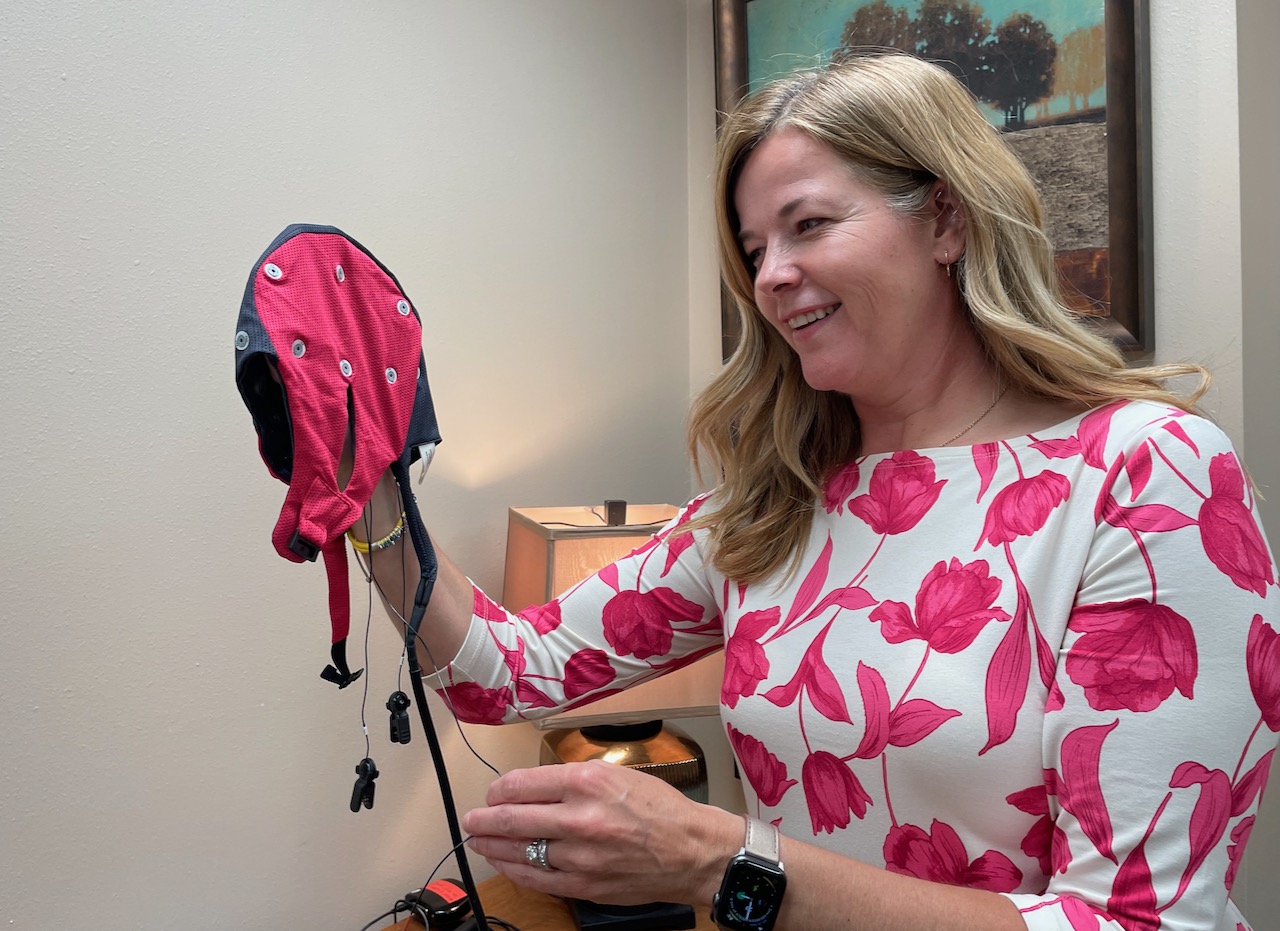

Tiffany Zimmerman-Hoeft wants to promote early intervention when it comes to addressing cognitive declines.
Zimmerman-Hoeft has started Minds Matter, PLLC, which is in suite 303 in Berkshire Plaza, 405 Eighth Ave. N.W.
Previously offering therapy for patients with mild cognitive changes through Brain Intercept, Zimmerman-Hoeft started her own company May 1. Her focus, she said, is providing early intervention therapy options.
She points to illustrations on a billboard as an example of one of her success stories. The drawings were from one of her patients who had been an avid drawer, but stopped in recent years. At the far left was a detailed drawing of a cat’s face, an illustration the patient had previously completed, and next to it were early versions of sketches completed as part of her therapy, which included sitting down and drawing. The sketches progress from simple sketches with little detail to a more detailed sketch that resembles the style of her original work.
Zimmerman-Hoeft said the goal with the therapy she provides is to create new pathways in the brain to complete tasks. For example, someone who is struggling with recalling words can do memory exercises. Eventually those exercises will lead to the creation of new pathways.
Her work is based on research that continues to advance and show the brain’s capacity to grow and adapt.
“We now know in the memory area we can grow more cells,” she said.
The more active and robust the brain is, she said, the more people can fight aging as they get older.
She describes her work as physical therapy for the brain. Zimmerman-Hoeft said COVID-19 has put the spotlight recently on brain health with conversations about brain fog. She experienced something similar when she had West Nile virus as she struggled to complete a Sudoku puzzle after she recovered.
“I noticed the difference in my attention and memory in 2012,” she said. “That kicked me into doing a lot of research on brains.”
Her goal, she said, is to meet with clients, find out their struggles and determine the exercises they can do to help.
While the results can vary, she said, 30% to 40% of mild cognitive impairments can be reversed. They also don’t have to progress to dementia. But, she said, once the impairment becomes dementia, that can’t happen.
“It’s a hard turn once dementia sets in,” she said.
That’s why she wants people to realize there’s a lot that can be done to help with memory issues, but early intervention is key. And, she said, avoiding tasks like mentally calculating math problems or having someone else recall key information because those tasks are becoming difficult isn’t the answer. When people stop doing tasks, Zimmerman-Hoeft said, the brain will adapt and stop using those pathways.
Of the services Zimmerman-Hoeft provides, one is a brain scan that shows if there are parts of the brain that aren’t lighting up as they should.
The scan measures activity only, and doesn’t look at physical characteristics, she said. The scan is done by having the patient wear what looks like a swim cap with multiple places where electrodes are placed to collect information. The result, she said, is a series of images that show which parts of the brain are in use and how intensely.
While she does accept Blue Cross Blue Shield, Avera, Sanford and Medicare for insurance purposes, she said the scan falls under preventative care, which isn’t covered. Still, the scan provides useful information, she said. With a medical diagnosis, many of her therapies are covered by insurance, she said.
Zimmerman-Hoeft doesn’t handle medical issues. But, she said, when people don’t care for health concerns like diabetes, that can lead to cognitive issues. If she picks up on an issue better suited for a neurologist, she said she will point patients in that direction. //















